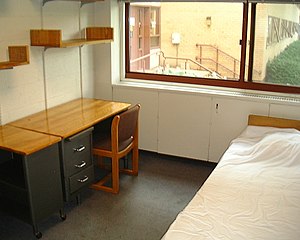Everyone knows that all college students keep strange hours and that the demands of a college schedule often leave you sleep-deprived and drowsy. Unfortunately, your graduation from high school didn’t decrease the amount of sleep you need. Most college students need a solid 8 or 9 hours of sleep a night to be at their best, including you. Getting the right amount of sleep is one of the most important things you can do to safeguard your health and increase your capacity to learn. But if college is not conducive to a healthy sleep habits, what can you do to make sure you get the sleep you need?
Here are 5 tips to help you start your semester off right to ensure you have enough time to study, socialize, and sleep in the right amounts.
- Practice Prioritization. The key to keeping on top of your sleep schedule from the first day of class until you finish your finals is making sleep a high priority. It needs to be at the same level as studying, socializing, and exercising. One of the challenges of college is learning how to manage your own schedule and make the tough choice when your friend wants you to see a new band tonight and you need to study. If you choose to replace sleep time with study time so you can watch the band, you will have to balance the equation out the next day.
- Negotiate Room Rules. If you are living in a dorm with a roommate, your challenge is even harder as you can’t even control your own sleep space. Start out right by sitting down and negotiating the “Rules of the Room” with your roommate. Make sure you discuss things like schedules, visitors, quiet times, and sleeping. Getting on the same page from the start will help you both avoid problems down the road and setting boundaries ensures you won’t get woken up at 3 AM by the light or TV.
- Set-up a Sleep Sanctuary. A dorm room can hardly be described as the ideal location for creating a sleep sanctuary, but with a little work and some creative solutions you can set-up a space conducive to sleep. Make sure the mattress is comfortable and invest in soft, comfortable bedding and pillows that invite you to snuggle in for a good night sleep. Use earplugs and a sleep mask to cut down on sleep interruptions from external noise and light.
- Create a Sleep Routine. Research shows that our bodies and minds crave routine and that following the same routine helps prepare use to go to sleep and can help us fall asleep faster. Your routine might include changing into pajamas, brushing your teeth, calling your mom, or reading a book. It doesn’t matter what your routine includes or what order you decide to do things in, so make it a routine tailor made for you.
- Manage Your Time. This one might seem like it goes without saying but it can have a significant impact on whether or not you get enough sleep. Scheduling time to study, nap, exercise, go to class, and take care of things like doing laundry will help you see where you have time crunches and where you have leeway. But creating a schedule is only half the battle; you also need to have boundaries that you enforce. If you schedule study time and end up socializing with your friends, you will have to give up some other social activity to get back on track. Keeping time swaps like this within the same category allows you to be flexible while ensuring you aren’t always sacrificing sleep or studying for social time.
About Valley Sleep Center:
Since 2002, Valley Sleep Center, accredited by the American Academy of Sleep Medicine, has provided Arizona with diagnostic sleep disorder testing in a home-like atmosphere, ensuring a comfortable, relaxing experience for patients. Their Board Certified Sleep Medicine Specialists consist of experienced and knowledgeable physicians who provide expert advice across a multitude of sleep related disorders including insomnia, sleep apnea, snoring, excessive daytime sleepiness, hypertension, sleepwalking, and pediatric sleep problems. They accept most insurance plans as well as Medicare. For more information contact Lauri Leadley at 480-830-3900; https://valleysleepcenter.com.
Related Articles:
- The Early Bird Gets the Grades (valleysleepcenter.com)
- Four Tips to Avoiding Insufficient Funds in Your Sleep Bank (valleysleepcenter.com)
- 7 Steps to a Good Night’s Sleep (valleysleepcenter.com)


